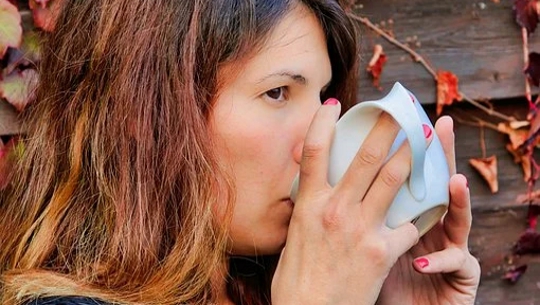
Breast cancer has now overtaken lung cancer as the world’s most commonly diagnosed cancer, and as the leading cause of cancer-related deaths for women in many countries. While genetics can certainly increase risk of the disease, for most women lifestyle factors, such as alcohol or being overweight or obese, are bigger influences on developing breast cancer. Now, two separate studies, both published in 2020, have identified cow’s milk as another possible risk factor for breast cancer.
The first study, which looked at 33,780 Swedish women since 1997, found that about 300 millilitres of cow’s milk per day (the equivalent of a large mug) increased breast cancer risk by about a third compared to women who did not drink milk.
The second study, from the US, looked at 52,795 over a period of nearly eight years and found that women who drank about 300 millilitres of milk per day had a 50% increased risk for breast cancer compared with those who drank very little milk.
Both studies found that the risk was mostly limited to post-menopausal women who developed a type of breast cancer stimulated by oestrogen, called oestrogen-receptor positive breast cancer. There was no increased risk of other types of breast cancer which rely on other growth factors (such as HER2 positive breast cancer).
Get The Latest By Email
But because of their design, the studies could only conclude that there was an association between milk consumption and breast cancer – they could not prove that drinking milk caused cancer. The authors of the studies took into account other known causes of breast cancer that might have explained their results, such as the woman’s age when she had her first period and menopause, and alcohol consumption. But the authors could still not completely discount all other possible explanations for their findings. So how important is milk as a cause of this type of breast cancer?
To understand why cow’s milk might increase risk of oestrogen-receptor positive breast cancer, it’s important to look at biological studies, which can help us see which mechanisms are taking place in the body. Cow’s milk naturally contains stimulants for cell growth and division. These stimulants act in the body by raising levels of a growth factor called IGF1 (insulin-like growth factor 1). Studies show that in humans, it’s these raised levels of IGF1 that are strongly implicated in increasing breast cancer risk, which may be why drinking milk is linked to greater risk.
Interestingly, fermented dairy products (yogurt and cheese) did not increase breast cancer risk in either of the earlier studies. This may be because yogurt and cheese do not increase IGF1 levels in the body. This could be because the IGF1-stimulating factors present in milk are lost during the making of cheese and yogurt.

IGF1 does not increase breast cancer risk on its own. Rather, its ability to stimulate cell growth is greatly magnified by oestrogen. This could explain why in the two studies, high milk consumption increased the risk for oestrogen-receptor positive breast cancer, but not for other types. It may be that both oestrogen and IGF1 are needed for breast cells to become cancerous – and that this can only happen in cells that respond to oestrogen as well as to IGF1.
Other risk factors
As well as milk, many other factors that increase the risk for breast cancer also act by raising levels of IGF1 or oestrogen in the body. Obesity raises levels of both IGF1 and oestrogen in post-menopausal women. And an early menarche, a late menopause and drinking alcohol all increase the duration and amount of breast cells’ exposure to oestrogen.
Since many risk factors influence oestrogen and IGF1 levels, it’s too simplistic to point the finger of blame for breast cancer at only one food, such as milk. Many factors need to be considered. This may help explain why, for example, Belgium, the Netherlands, and Luxembourg occupy the top three spots in the world for breast cancer incidence. Milk consumption is high in the Netherlands, but it’s not particularly high in Belgium or Luxembourg. And while obesity rates for women in these countries is high, they are certainly not the highest in the world. Neither is their alcohol consumption especially high. So it’s probably the coming together of many risk factors elevating oestrogen and IGF1 levels that contributes to the especially high incidence of breast cancer in the Benelux countries.
It’s equally important to consider protective factors. Physical activity lowers the risk of breast cancer and improves survival in breast cancer patients, and this is linked to lowering IGF1 levels. Diet can also protect against raised levels of oestrogen and IGF1. Some foods contain substances called phytoestrogens that block the action of oestrogen. For instance, extra virgin olive oil is an exceptionally rich source. This may also partly explain why women who eat a Mediterranean diet (which traditionally doesn’t include cow’s milk) are at a lower risk of breast cancer. So while cow’s milk may be a risk factor for breast cancer, it acts alongside many other risk factors.![]()
About the Author
Richard Hoffman, Associate lecturer, Nutritional Biochemistry, University of Hertfordshire
This article is republished from The Conversation under a Creative Commons license. Read the original article.
books_health










